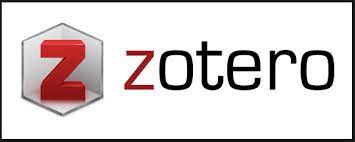A Systematic Review of Flashcards for English Language Teaching (ELT)
Keywords:
English Language Teaching; Flashcards; Primary School; Student Engagement; Vocabulary AcquisitionAbstract
Flashcards have long been recognized as a valuable tool in English Language Teaching (ELT), particularly for helping students build and retain vocabulary. With the rise of technology, traditional paper-based flashcards have evolved into digital formats, making them more versatile and widely accessible in language learning. This study aims to analyze trends in flashcard research and explore their impact on vocabulary acquisition, student engagement, and technological integration. This systematic review explores the effectiveness of flashcards in ELT, focusing on primary school students by analyzing studies published between 2020 and 2024. Following the PRISMA framework, relevant studies were selected from databases such as Google Scholar, Mendeley, and Semantic Scholar, ensuring a rigorous screening process based on specific inclusion and exclusion criteria. The findings reveal that flashcards improve vocabulary retention, increase student engagement, and foster motivation. Digital flashcards, in particular, offer interactive features, multimedia support, and ease of access, creating a more engaging and adaptable learning experience. However, challenges such as unequal access to technology and the risk of over-reliance on digital tools must be considered. This review emphasizes the importance of integrating flashcards with other teaching strategies to maximize their impact in ELT classrooms.
Downloads
References
Adzani, M. R., & Salahuddin, R. (2019). Flashcard Sentence As A Media For Increasing Elementary School Students’ Literacy Understanding. Jurnal At-Tarbiyat: Jurnal Pendidikan Islam, 5(3), 401–410. https://doi.org/10.37758/jat.v5i3.511
Agustini, E. Y., Tarihoran, N., & Sapriati, A. (2023). The Relationship Between Learning Motivation and Self-Efficacy Through Science Learning in Elementary Students. Jurnal Pendidikan Sekolah Dasar, 9(2), 133.
https://doi.org/10.30870/jpsd.v9i2.19533
Ariyanto, A., B., T. C. S., & Ardini, S. N. (2024). Use of Flashcards Through Umbul Game in Learning Vocabulary: Is It Effective? ETERNAL (English Teaching Journal). https://doi.org/10.26877/eternal.v15i2.745
Atmaja, A. S. K., & Sonia, G. (2020). Using Flash Cards to Improve Students’ Vocabulary. PROJECT (Professional Journal of English Education), 3(2). https://doi.org/10.22460/project.v3i2.p283-289
Çaparlar, İ., & Yünkül, E. (2024). The Effects of Online Applications in English Vocabulary Learning: Quizlet Application. Kastamonu Eğitim Dergisi. https://doi.org/10.24106/kefdergi.1525351
Clark, J. M., & Paivio, A. (1991). Dual Coding Theory and Education. In Educational Psychology Review (Vol. 3, Issue 3).
Dang Thi Kim Chung, M. A. (2023). The Efficacy of Visual Aids in Enhancing Vocabulary Acquisition in EFL Classes. International Journal of Social Science and Human Research. https://doi.org/10.47191/ijsshr/v6-i10-80
Dineshika, H., & Jayasinghe, D. R. R. (2024). The Effectiveness of Flashcards in Vocabulary Instruction for English as a Second Language Online Classes. International Journal of Research and Innovation in Social Science. https://doi.org/10.47772/ijriss.2024.8100141
Donasari, R., Rofiah, T. D., & Qurroti, A. (2023). Students’ Responses of Joyful Learning Class in Islamic Elementary School: Flashcard Games and Visual Worksheet. SITTAH: Journal of Primary Education, 4(2), 181–196. https://doi.org/10.30762/sittah.v4i2.1950
Fengyu, Z. (2023). The Impact of Vocabulary Learning Methods on Students’ Vocabulary Application Skills. English Language Teaching and Linguistics Studies, 5(4). https://doi.org/10.22158/eltls.v5n4p206
Gardner, H. (2006). Multiple intelligences: New horizons, Rev. ed. In Multiple intelligences: New horizons, Rev. ed. Basic Books.
Khasyi, R. A. A., Tarihoran, N., & Guven, S. (2024). Analysis of The Use of The Wordwall Application in Learning English Using Chromebook for Vocabulary. LEARNING : Jurnal Inovasi Penelitian Pendidikan Dan Pembelajaran, 4(4), 961–971. https://doi.org/10.51878/learning.v4i4.3455
Longchin, S., Poopatwiboon, S., & Phusawisot, P. (2024). Using Digital Flashcards to Improve English Word Reading Skills in Thai Primary School Learners. Journal of English Language and Linguistics. https://doi.org/10.62819/jel.2024.346
Madya, S., Hamied, F. A., Renandya, W. A.,
Coombe, C., & Basthomi, Y. (2018). ELT in Asia in the Digital Era: Global Citizenship and Identity: Proceedings of the 15th Asia TEFL and 64th TEFLIN International Conference on English Language Teaching, July 13-15, 2017, Yogyakarta, Indonesia. CRC Press. https://books.google.co.id/books?id=0IlhDwAAQBAJ
Management Association, I. R. (2019). Computer-Assisted Language Learning: Concepts, Methodologies, Tools, and Applications: Concepts, Methodologies, Tools, and Applications. IGI Global. https://books.google.co.id/books?id=R_OADwAAQBAJ
Marmon, M. (2018). Enhancing Social Presence in Online Learning Environments. IGI Global. https://books.google.co.id/books?id=dkFNDwAAQBAJ
Mathura, S., & Zulu, F.-Q. B. (2021). Using flashcards for English second language creative writing in Grade 1. Reading & Writing, 12(1). https://doi.org/10.4102/rw.v12i1.298
Maulana, H., Tarihoran, N., Hunainah, H., & Wasehudin, W. (2023). Penerapan Media Pembelajaran Interaktif pada Mata Pelajaran Pendidikan Islam di Yayasan Al-Uyun Lebak. ISLAMIKA, 5(3), 1129–1140. https://doi.org/10.36088/islamika.v5i3.3592
Mayer, R. E. (2014). Cognitive Theory of Multimedia Learning. In R. E. Mayer (Ed.), The Cambridge Handbook of Multimedia Learning (2nd ed., pp. 43–71). Cambridge University Press. https://doi.org/DOI: 10.1017/CBO9781139547369.005
Morady Moghaddam, M., Esmaeilpour, F., & Ranjbaran, F. (2025). Insights into Mobile Assisted Language Learning Research in Iran: A decade review (2010–2023). Education and Information Technologies, 30(2), 2155–2181. https://doi.org/10.1007/s10639-024-12879-6
Nakata, T. (2019). Learning Words With Flash Cards and Word Cards (S. Webb, Ed.). Routledge. https://doi.org/10.4324/9780429291586
Nasution, A., & Rahim, R. (2022). The development of Flashcard media to improve students’ English vocabulary in English lessons at MIS Nurul Hidayah Medan. JINoP (Jurnal Inovasi Pembelajaran), 8(2). https://doi.org/10.22219/jinop.v8i2.22521
Nasution, K. Y., Putri, R., Sitepu, Br., Manurung, R. A., Lismawarni, Himmawan, R., Pulungan, A., & Panggabean, V. P. (2024). Digital Flashcards to Boost Children’s Interest in English Communication. Journal of English Language and Pedagogy (JELPA). https://doi.org/10.51826/jelpa.v2i2.1287
Nuryani, N., & Fadloeli, O. (2021). The Utilization of Flash Cards in Teaching English to Young Learners. PROJECT (Professional Journal of English Education), 4(2), 156. https://doi.org/10.22460/project.v4i2.p156-162
Page, M. J., McKenzie, J. E., Bossuyt, P. M., Boutron, I., Hoffmann, T. C., Mulrow, C. D., Shamseer, L., Tetzlaff, J. M., Akl, E. A., Brennan, S. E., Chou, R., Glanville, J., Grimshaw, J. M., Hróbjartsson, A., Lalu, M. M., Li, T., Loder, E. W., Mayo-Wilson, E., McDonald, S., … Moher, D. (2021). The PRISMA 2020 statement: an updated guideline for reporting systematic reviews. BMJ, n71. https://doi.org/10.1136/bmj.n71
Putri, F. A. K., Sorohiti, M., & Ariebowo, T. (2024). Teaching English Using Flashcards to Improve Elementary School Students’ Vocabulary. Journal of Foreign Language Teaching and Learning, 8(2), 198–215. https://doi.org/10.18196/ftl.v8i2.21350
Rahmani, A., Asadi, V. R., & Xodabande, I. (2022). Using Mobile Devices for Vocabulary Learning Outside the Classroom: Improving the English as Foreign Language Learners’ Knowledge of High-Frequency Words. Frontiers in Psychology, 13. https://doi.org/10.3389/fpsyg.2022.899885
Rassaei, E., Gao, X., & Poole, B. (2023). Incorporating Technology for Teaching Vocabulary to Second Language Learners. Frontiers Media SA. https://books.google.co.id/books?id=m163EAAAQBAJ
San, J. (2023). Learning vocabulary with the help of flashcard apps. A critical analysis of selected apps regarding vocabulary retention. GRIN Verlag. https://books.google.co.id/books?id=RE_NEAAAQBAJ
Santika, R., Farizki, R., & Adiantika, H. (2023). English Language Learning with Flashcard Media and Educational Posters to Improve Language Education. Journal of Social Science. https://doi.org/10.46799/jss.v4i3.580
Saputri, N. A., & Prasetyarini, A. (2024). Teaching Vocabulary Using Flashcards in EFL Classroom in Indonesia and Malaysia. Paedagogia: Jurnal Pendidikan. https://doi.org/10.24239/pdg.vol13.iss1.487
Skinner, B. F. (2014). Verbal Behavior. B. F. Skinner Foundation. https://books.google.co.id/books?id=v4CeAwAAQBAJ
Sulaiman, R., & Akidah, I. (2021). Pembelajaran Bahasa Inggris Menggunakan Media Flash Card Pada TPA Masjid Baitul Maqdis. Madaniya, 2(3), 242–252. https://doi.org/10.53696/27214834.84
Surapur, A. B. (2020). English Language Teaching. Ashok Yakkaldevi. https://books.google.co.id/books?id=VDJAEAAAQBAJ
Sweller, J. (1988). Cognitive Load During Problem Solving: Effects on Learning. In COGNITIVE SCIENCE (Vol. 12).
Syamsiyah, N., & Ma’rifatulloh, S. (2023). The Effectiveness of Using Flashcard to Improve Students’ Vocabulary Mastery. Journal of Science and Education Research, 2(2), 25–30. https://doi.org/10.62759/jser.v2i2.37
Thoriq, S. T. H., & Dwi Kurniawan, D. (2021). The Use of Flashcard to Improve the Mastery of English Concrete Nouns of Young Learners. Wiralodra English Journal (WEJ), 5(1), 20–31. https://doi.org/10.31943/wej.v5i1.116
Webb, S. (2019). The Routledge Handbook of Vocabulary Studies. Taylor & Francis. https://books.google.co.id/books?id=Ul2yDwAAQBAJ
Xodabande, I., Asadi, V. R., & Valizadeh, M. (2022). Teaching Vocabulary Items in Corpus-Based Wordlists to University Students: Comparing the effectiveness of digital and paper-based flashcards. Journal of China Computer-Assisted Language Learning, 2, 257–280. https://doi.org/10.1515/jccall-2022-0016
Yuliantari, I. G. A. W., Padmadewi, N. N., & Budasi, I. (2021). The Implementation of Learning Vocabulary Using Flashcard for Young Children Through Google Classroom. Jurnal Pendidikan Bahasa Inggris Undiksha. https://doi.org/10.23887/jpbi.v9i3.38289








